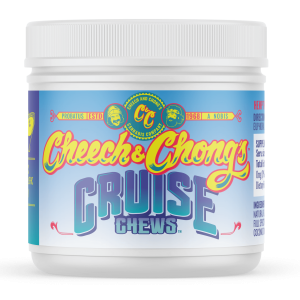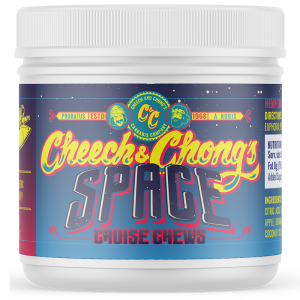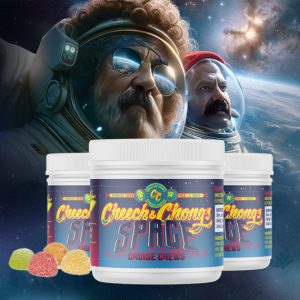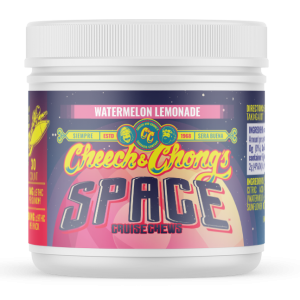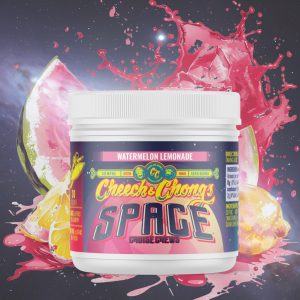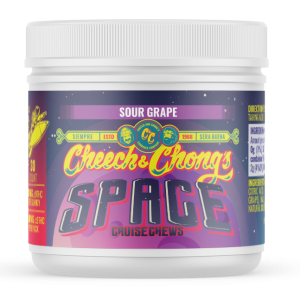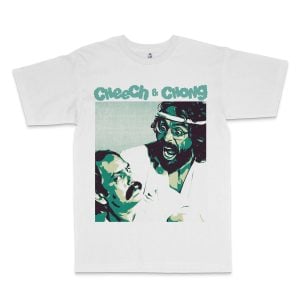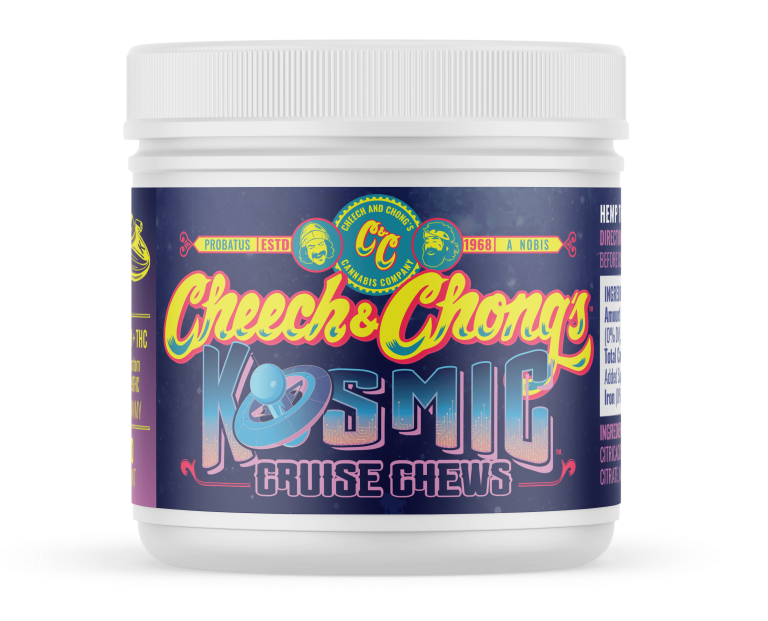Can CBD assist with Fragile X syndrome?
- Dave
- June 15, 2023
- No Comments
Individuals facing the challenges of Fragile X- or Martin-Bell Syndrome find themselves navigating a complex landscape that demands innovative solutions from their caregivers. Thankfully, recent research has uncovered a ray of hope in the form of cannabidiol (CBD), offering potential assistance on this journey.
The multifaceted nature of Fragile X syndrome necessitates an inclusive and adaptable approach to caregiving. As loved ones strive to provide the best possible care, exploring alternative options becomes paramount. In this pursuit, the emerging potential of CBD as a supportive element shines a promising light, captivating the attention of researchers and families alike.
As we delve deeper into the intricate world of Fragile X syndrome, the therapeutic possibilities of CBD beckon us to expand our understanding and embrace new avenues of care. Through ongoing research and compassionate exploration, we strive to enhance the quality of life for those affected by Fragile X, empowering both individuals and their caregivers with the hope of a brighter future.
Exploring CBD’s Potential
To comprehend the correlation between Fragile X and CBD, let’s first delve into the realm of CBD itself.
Most Popular Products
Cannabis plants, including hemp and marijuana, boast a myriad of chemical compounds called cannabinoids—113 to be exact. Among these compounds, CBD takes the spotlight. You may have encountered other cannabinoids as well, with tetrahydrocannabinol (Delta 9 THC) being a familiar name.
Delta 9 THC often steals the limelight due to its psychoactive properties, inducing the euphoria associated with cannabis consumption. However, CBD, although also a cannabinoid, does not share these psychoactive traits. Instead, it is renowned for its potential to cultivate a heightened sense of tranquility in users.
Numerous studies have scrutinized the effects of CBD on various conditions, including those linked to Fragile X syndrome.
What is Fragile X syndrome and how might CBD help?
Fragile X syndrome, a genetic disorder impacting development and intellectual abilities, manifests more frequently in males due to its association with the X chromosome. This condition gives rise to developmental delays, speech impediments, attention difficulties, anxiety, and often co-occurs with Autism.
While CBD may not offer a comprehensive solution for all Fragile X syndrome symptoms, studies suggest its potential efficacy in alleviating specific aspects. Anxiety, a prevalent struggle for individuals with the disorder, may find relief through CBD’s calming effects. Delta 9 can also assuage anxiety in some individuals. Research focusing on generalized social anxiety disorder has revealed CBD’s ability to promote a greater sense of tranquility, providing hope for managing anxiety-related challenges.
Furthermore, attention issues and hyperactivity, common hurdles for those with Fragile X syndrome, have piqued interest in CBD’s potential beyond anxiety. Exploration into CBD’s impact on conditions like ADHD has shown promise. Studies observing hyperactive rats noted that CBD effectively regulated their hyperactivity without dampening their distinctive personalities, hinting at CBD’s potential to manage attention-related symptoms. No key research findings are available in this area when it comes to Delta 9.
As we continue to study CBD, our understanding of its potential benefits deepens. While research is still ongoing, the current findings present promising possibilities for utilizing Delta 9 and CBD as a complementary approach in addressing Fragile X syndrome.
Diverse CBD Delights: Exploring Various Forms
When it comes to CBD, the possibilities are endless. This versatile extract can be transformed into a wide array of products, making it effortless to discover the perfect fit for you or your child.
Among the popular CBD options are oral products, encompassing a range of formats. Traditional choices include oils and tinctures, where CBD extracts blend harmoniously with carrier oils like coconut oil. These can be consumed in multiple ways. Mixing CBD oil or tincture with food or beverage is a common method, particularly beneficial for individuals averse to the oils’ natural taste. Alternatively, a few drops placed under the tongue offer a more direct route, although this may pose challenges for picky eaters.
Capsules and tablets provide alternative oral options. These CBD-infused pills vary in composition, and while swallowing regular pills may be tricky for children, soft gel capsules offer flexibility and faster absorption. Dissolvable products placed on the tongue eliminate the need for swallowing altogether.
Edibles reign as the most popular oral CBD products, incorporating CBD into a delectable array of food and beverages, ranging from candies to pastas, sodas to teas. These delights offer simplicity and delightful flavors, often the preferred choice for children. However, it is essential to store CBD edibles out of children’s reach to prevent excessive consumption. While there are no serious side effects associated with excessive CBD intake, it can lead to stomach discomfort.
Another CBD product category worth exploring is topicals, such as lotions and creams infused with CBD. Topicals excel in delivering localized effects, with CBD primarily impacting the application area. In contrast, oral products tend to have a more comprehensive influence.
If you’re interested in Delta 9 products, there are almost as many options. Delta 9 gummies, Delta 9 oils, Delta 9 tinctures, Delta 9 edible snacks…the list goes on and on. We even saw that Cheech & Chong just released a Delta 9 seltzer water!
The Intricacies of CBD Dosage and Administration
As the popularity of CBD continues to soar, it is crucial to explore the intricacies of dosage and administration, ensuring optimal effectiveness and safety. Understanding how to determine the appropriate dosage and choose the right administration method becomes paramount in harnessing the potential benefits of CBD for Fragile X syndrome.
CBD dosage is influenced by various factors, including an individual’s body weight, metabolism, severity of symptoms, and overall health condition. A starting point for dosage is typically 1-6 mg of CBD per 10 pounds of body weight. However, it is vital to consult with a healthcare professional experienced in CBD use to tailor the dosage to the specific needs of the individual with Fragile X syndrome.
When it comes to administration methods, oral consumption prevails as a popular choice. However, sublingual administration, where CBD oil or tincture is held under the tongue for a brief period, offers a faster onset of effects. This method bypasses digestion and allows CBD to enter the bloodstream more rapidly. Sublingual administration is particularly advantageous for individuals seeking immediate relief from symptoms such as anxiety or acute discomfort.
Alternatively, inhalation through vaporization is gaining popularity as a quick-acting administration method. Vaporizing CBD oil or flower involves heating the product to produce inhalable vapor, allowing CBD to be rapidly absorbed into the bloodstream through the lungs. This method is not suitable for everyone, especially individuals with respiratory conditions, and requires proper equipment and caution.
For localized relief, topicals infused with CBD offer a targeted approach. Lotions, balms, and salves can be applied directly to the affected area, allowing CBD to interact with cannabinoid receptors in the skin without entering the bloodstream. Topicals are particularly beneficial for managing symptoms like muscle pain, joint discomfort, or skin conditions associated with Fragile X syndrome.
As CBD use for Fragile X syndrome continues to evolve, research and individual experiences shed light on the ideal dosage and administration methods. Striving for personalized approaches that consider the unique needs of each individual is key. Consulting healthcare professionals with expertise in CBD and Fragile X syndrome plays a vital role in guiding dosage and selecting the most appropriate administration method, ensuring optimal benefits and safety.
Navigating Legalities and Quality Control in CBD Products
As the demand for CBD products surges, navigating the legal landscape and ensuring quality control becomes essential for individuals seeking CBD to assist with Fragile X syndrome. Understanding the legalities surrounding CBD and discerning reputable sources are crucial steps towards safe and effective usage.
The legal status of CBD varies across jurisdictions, adding complexity to its accessibility. In some regions, CBD derived from hemp with less than 0.3% Delta 9 THC is legal, while others have more stringent regulations or even prohibit CBD altogether. Familiarizing oneself with local laws and regulations regarding CBD is paramount to ensure compliance and avoid potential legal issues.
When it comes to quality control, selecting reliable CBD products is of utmost importance. The CBD market is inundated with a plethora of products, ranging from oils and edibles to topicals and more. However, not all products are created equal, and substandard manufacturing practices can lead to inconsistencies in CBD content, contamination, or mislabeling.
To ensure quality, it is essential to seek products from reputable companies that prioritize transparency and adhere to rigorous quality control standards. Look for products that undergo third-party lab testing, which verifies the CBD content and ensures it is free from harmful contaminants. Certificates of analysis (COAs) from reputable laboratories provide valuable information about the product’s cannabinoid profile, potency, and purity.
Additionally, consider the sourcing of CBD. Opt for products derived from organic hemp grown in regulated environments, as this reduces the risk of exposure to pesticides, heavy metals, and other harmful substances. Transparent companies often provide information about their sourcing practices, emphasizing ethical cultivation and extraction methods.
By staying informed about the legal landscape surrounding CBD and making informed choices when selecting products, individuals can navigate the market safely and confidently. Prioritizing quality control and seeking reputable sources not only ensures the reliability and efficacy of CBD products but also promotes a responsible and informed approach to CBD use in managing Fragile X syndrome.
Embracing Delta 9: Supporting Caregivers on their Journey
Caregiving for individuals with Fragile X syndrome is a labor of love that demands immense dedication, compassion, and resilience. The journey is rife with challenges, stress, and emotional strain, leaving caregivers in need of their own support systems. In the midst of this journey, Delta 9 emerges as a potential ally in helping caregivers navigate the demands of their role.
Delta 9 can play a crucial role in managing the stress and hardships that caregivers often encounter. The therapeutic properties of CBD have been known to promote a sense of calm and relaxation, easing the burden of the caregiving journey. But by incorporating Delta 9 into their self-care routines, caregivers can find solace and rejuvenation amidst the daily responsibilities and demands they face.
One of the ways Delta 9 can assist caregivers is by alleviating symptoms of anxiety and stress. Caregiving can be emotionally overwhelming, and the constant worry and pressure can take a toll on caregivers’ mental well-being. Delta 9 has shown potential in reducing anxiety symptoms, providing a much-needed respite from the relentless stressors of caregiving. By incorporating Delta 9 into their self-care regimen, caregivers can experience a greater sense of calm and tranquility, allowing them to recharge and face their responsibilities with renewed energy.
Moreover, Delta 9 may contribute to improved sleep quality for caregivers. Many caregivers experience disrupted sleep patterns due to the demands of their role, leading to chronic fatigue and exhaustion. By promoting relaxation and easing the mind, Delta 9 can aid in achieving a more restful sleep, allowing caregivers to wake up feeling refreshed and rejuvenated. Quality sleep is vital for caregivers to maintain their own physical and mental well-being, enabling them to provide the best possible care for their loved ones.
In addition to its potential effects on anxiety and sleep, Delta 9 may also offer relief from physical discomfort that caregivers may experience as a result of the physical demands of caregiving. Muscle tension, aches, and pains are common ailments among caregivers, as they often engage in physically demanding tasks. Delta 9’s anti-inflammatory properties and potential analgesic effects can provide much-needed relief, allowing caregivers to better manage their own physical well-being while attending to the needs of their loved ones.
It is important for caregivers to prioritize self-care and seek support in their caregiving journey. Incorporating Delta 9 into a holistic self-care routine can be a powerful tool in nurturing their own well-being. However, it is crucial for caregivers to consult with healthcare professionals experienced in Delta 9 use to determine the appropriate dosage and find the right product that suits their individual needs.
By embracing Delta 9as a supportive element, caregivers can find solace, resilience, and renewed strength in their role. It is a testament to the profound potential of Delta 9 and CBD in not only assisting individuals with Fragile X syndrome but also in providing essential support for the caregivers who dedicate their lives to their loved ones’ well-being. Together, we can create a caregiving environment that embraces holistic well-being, empowering caregivers to navigate their journey with grace and fortitude.
OTHER PRODUCTS
-
Sale!

-
Sale!
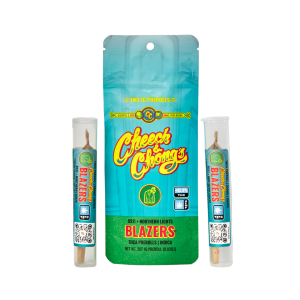
-
Sale!

BEST SELLING PRODUCTS
-
Sale!

-
Stock
Out
-
Sale!



